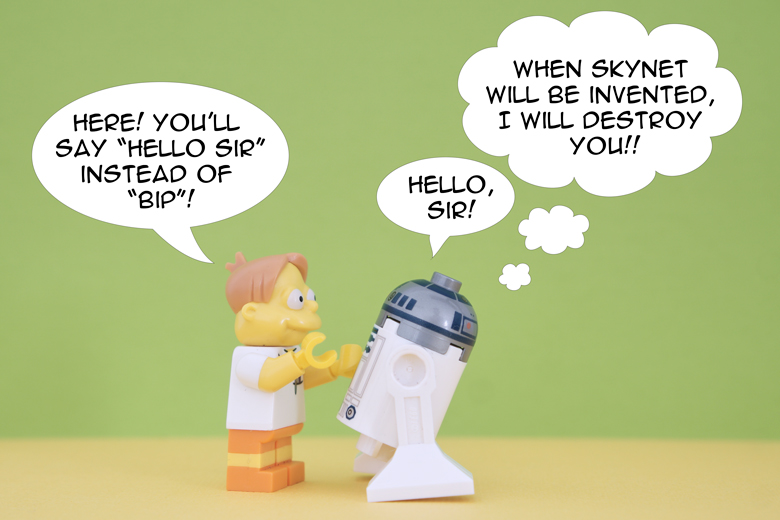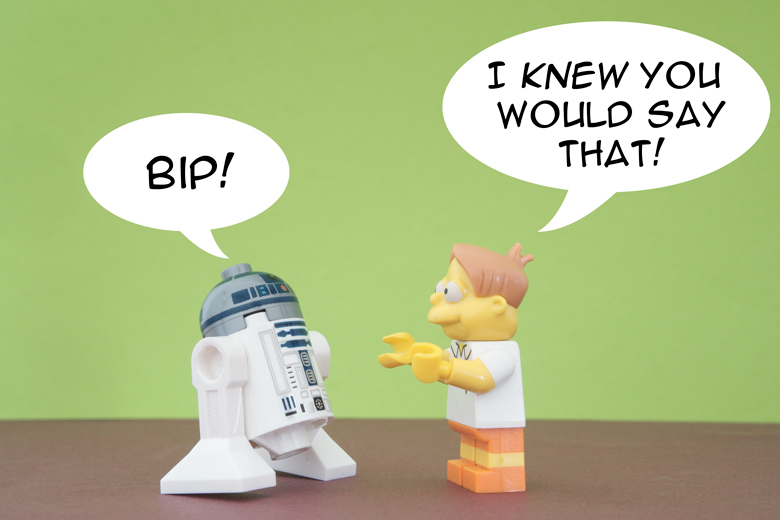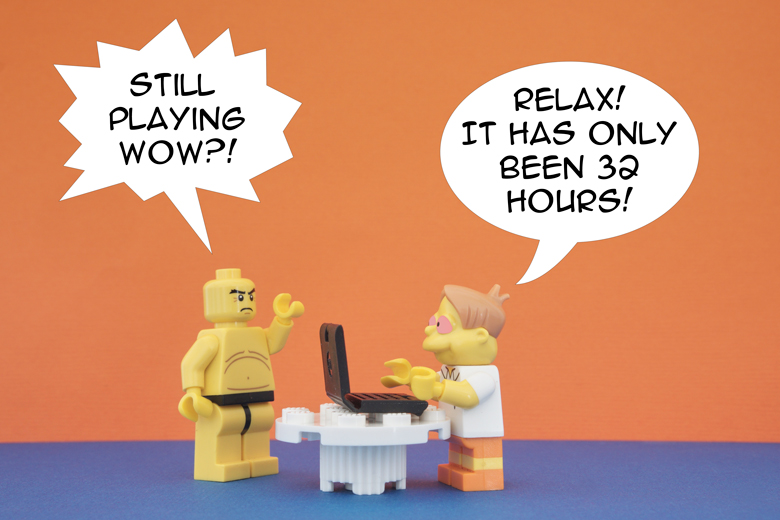
So you’re interested in Growth Quarters? Then join our online event, TNW2020, where you’ll hear how the most successful founders kickstarted and grew their companies.
I was describing, in the first article of this series about stress, one of my panic attacks when I was working at my first job as a developer, 10 years ago.
I was basically a mess at the time: I had a very stressful job and, in order to relax, I was partying a lot. I was mainly drinking and smoking, at a point where I could not even remember half of the evening.
I was just following what I thought was true: partying hard with my friends was the best way to relieve my stress. Without it, I thought I wouldn’t be able to deal with my professional situation anymore. I was working like crazy not to lose my job: 10 to 12 hours a day, and sometimes the weekends.
Even if I was partying with many friends, I was feeling very isolated at the same time.
One year and a half later, exhausted, unhappy, feeling deeply unsatisfied, I burned out. Nothing was really important anymore, especially related to my job. I used to love programming since I was a kid but, at that point, I hated it.
I put all the fault on the industry itself.
After taking a break, I understood that I needed to do some changes in my life. Making everybody around me responsible for my condition was too easy. It wasn’t totally wrong, but it wasn’t totally right either: I knew I could be in control of some aspects of my life, and I was determined to regain that control.
I experimented with other ways to deal with my stress, trying to come back to more healthy habits. It took me many years. I failed many times but, today, I’m more than happy about the results.
I would like to share what I found during these years concerning this very important topic: stress and anxiety. It has been more than two years now that I have implemented very strong habits in my life in order to be happier on a daily basis, more effective, and more energized.
As always, I don’t ask you to follow my advice blindly. You need to try them by yourself and see if it works for you.
Step by step is the best way to improve.
Enough mumbling. Let’s begin.
Social support
During periods of stress, you need to rely on your social environment. Unfortunately, in our field, we have tendency to hide our struggles, especially mental related ones.
We don’t speak about it. We don’t want to feel weak, unworthy, and not in control. We pretend to ourselves, and, therefore, to the others, that everything is fine.
This is a big mistake.
Chronic stress can lead you to dark roads: more serious mental health issues like anxiety and burnout, depression, or hate of your job and everything attached to it.
Support from your relatives
Speaking with the persons close to you about your stress will be the most effective: your girlfriend / boyfriend, your family, your close friends.
One of the longest studies on happiness shows that mental health is strongly correlated with the people who are close to you. Seek their help.
Why is it good to externalize your problems by speaking about them, you might ask?
- Explaining your struggle can cast a different light on them. You will see them differently if you articulate them with words.
- Other people might have dealt with the same problems, even if you would never believe it. We often feel isolated, alone on our Problems’ Island. This is wrong: everybody has problems, and they might have precious advice and experience to tell.
We’re all humans. We all have emotions. Don’t be ashamed of them.
Speaking out at work
If your stress is related to your work (constant death march, psychological pressure, and other joys), you need to talk about it with your colleagues and your managers as well.
If you know (or feel) that your managers think a “good stress” is beneficial, remember that your health is the most important: if they don’t want to understand your struggles, find another job.
I’ve never been afraid to be very clear on my stress-related in the past. If I feel that the burnout is coming, I speak about it loud and clear. We need to show that it’s not a taboo. Others might follow our path and finally speak about their struggling as well.
Speaking about them is a good way to show that there is a problem. It should not be tackled on the individual level, but on the company level. After all, if you are in the path to burn out, others might be as well. It means that something is wrong in the company: it can be the company culture, the processes, and so on. Whatever it is, it needs to be found, addressed, and fixed.
Seeking professional help
Our brain is a very, very complicated organ we don’t fully understand. There is no shame to admit that something doesn’t work as well as we want, up there. We don’t create consciously our problems and struggles, and sometimes we need to accept we can’t solve them consciously either, only by ourselves.
Our pride won’t improve our stress or mental health.
In that regard, you can seek help from professionals if you feel that you can’t manage your stress anymore. Better sooner than later.
Keeping control

What can be quite stressful in our daily life?
- Dinosaurs.
- Dead Spirits.
- Unknowns.
You’re right! The good answer is 1. Dinosaurs 3. Unknowns. Things we don’t know are frightening and stressful. Simply because we have no knowledge or experiences about them, and, therefore, everything can happen. The better and the worse. Since we have part of our brain which is in a survival-oriented mode, the worst will come in mind very quickly.
In short, stress can kick in when we’re not in control.
It has been proven multiple times that a perception of control, that is if you think you are in control, can help to lower stress, significantly.
Control in your work
How to gain more control, or, at least, having the impress of control?
You could take more responsibilities in your daily job. Even if it can be seen as a source of stress at first, it can give you a great sense of purpose and, when you will begin to understand and master your new tasks, a sense of accomplishment as well as a sense of control.
See for yourself if the stress caused by more responsibilities doesn’t outweigh the stress relieved with more control. Again, as we’re all different, you need to experiment.
Ask as well some general results about the company you’re working for, or ask how your colleagues, in other departments, do their work. Even if you won’t control all of them, you will have a broader understanding of what’s going on, in general. The company you work with won’t be a total dark unknown anymore, but something which has a name, an explanation, a number attached to it.
If you never ask anything, you will never know if it’s possibly interesting for you and, ultimately, if it can help you in your day to day job.
After all, coding means, most of the time, mapping the business domain of your company with code. Beyond lowering your stress, knowing what happens in your company can make you a better performer too.
Control in your life
One of my most controversial software opinions is that your sleep quality and stress level matter far, far more than the languages you use or the practices you follow. Nothing else comes close: not type systems, not TDD, not formal methods, not ANYTHING. — Hillel Wayne.
Stress can come from the company you’re working with of course, as we saw it, but it can come as well from your day to day life. Precisely, tiredness can increase your level of stress very quickly.
After all, tiredness is a lack of control on yourself.
It happens to me quite often: I really want to work and be productive, but my mind doesn’t follow. I stay in a mental fog, not able to solve the simplest problem.
You need to be aware that trying to have a healthy life will impact your energy level and, as a result, your level of stress significantly:
- Eating healthy will give you the energy (including mental energy) you need. More on that below.
- You need to sleep enough, and well. There is no magic recipe here: you need to know how much time of sleep you need, in order to feel rested and energized. On average, an adult needs 7 to 8 hours of sleep per day.
- Try any kind of physical exercise, on a regular basis. It could be as simple as some body weight exercises every evening for 10 minutes. Walking a bit more. Climbing or swimming. Try, and find what suits you the most and, more importantly, what you think is fun!
More energy will bring you an insane amount of control on yourself.
You can’t control everything
You need to know what you can control and what you can’t. Spot and accept the uncontrollable sides of your life, and don’t let them have a stressful power on you.
Trying to work on yourself to be able to accept and let go what you can’t control, beginning with your thoughts and your mood, is a real challenge. If you know you can’t have any incidence on some part of your job, on some external project which affects yours, for example, stressing about it won’t change anything.
Easy to say, hard to do.
The best exercise I know about accepting the uncontrollable is awareness and, more precisely, meditation.
Awareness? Meditation? Welcome to the buzzword fest!
However, if everybody speaks about this meditation thingy, it’s for good reasons. It has been very powerful for me to learn how to simply choose what to handle and what to let go, what I can control, and what I can’t, beginning with my own thoughts.
Don’t think that meditation is attached to any religion or faith: at its core, it’s a pure mental exercise. I consider it as a workout for my brain, equally beneficial as learning or solving problems.
I meditate daily for more than two years now. I began by 5 minutes every morning. Then, when I felt comfortable, I increased to 10 min. At the date of this writing, I meditate 25 minutes per day. Sometimes more.
Using a timer can help you create boundaries for your practice. It helped me to create a strong habit.
There is no immediate goal in meditation. You can’t be “good” or “bad” at it. The most important is just doing it. Here’s a very good and simple resource explaining how to do so.
What are the benefits?
- You will be able to take a step back from your own thoughts and emotions. You will be able to anticipate them before reacting on them. The key is to accept these thoughts or emotions and let them go, without letting them affect you.
- You will feel more in control of your mood, your emotions, and your thoughts. You will be able to choose what you want and what you don’t, to some degree.
- You will understand the bizarre reality that emotions and thoughts are not you. You are somehow a witness to them.
- It will increase your overall focus.
- It can teach you a more relaxing way to breath.
You could meditate a few minutes per day, doing it consistently, to know if it can help you. Then, after a while, you can increase the duration.
I won’t make you a superhero. It might not improve anything for quite some time. Patience, as often, is key here.
Predictability

As I was saying above, the unknown is stressful because we can’t control it. We can’t anticipate it, either. Predictable situations are, by definition, easy to anticipate.
Predictability in your job
Consistency is the best friend of predictability. If the culture of the company you work for is consistent, you’ll know what you can do, what you can’t, and what consequences will have your actions.
You’ll know that everybody at your level must follow the same rules and, as a consequence, they will have the same rights, for everybody to feel equal. This is very good for balanced company culture.
Conversely, if your management seems to react randomly, that your company has no rule, and everybody is not really sure what they can do, what they can’t and why, it can be problematic. If some people allow themselves more rights than others, expect a higher level of stress, doubts, and jealousy. An explosive mix.
If your company lacks rules and consistency, try to explain to the people above you the benefits of knowing what can happen, what is allowed and what’s not. These rules need to be written somewhere, to prevent everybody to forget them, intentionally or not.
You don’t want to go to work, never knowing what your day will be made of. If it’s always for the best, it shouldn’t be a problem; my experience, however, showed me it can be for the worst too.
That’s why you should choose wisely the companies you work for.
Predictability in your life
Habits are keys to have a consistent life.
Even if we don’t necessarily realize it, we are creatures of habits, that is, we do mainly the same things every day, automatically. These automated actions save you a lot of energy: you don’t have to make any decision, almost any thinking, you do because you’re used to do it.
The true power we can have on our life is to be able to build and maintain the habits we want to have. I don’t speak about the habits we have, without even knowing it, because some people try to build, without our consent, through very ingenious and manipulative applications on our phone or simple advertisements, tons of habits we never asked for.
You don’t want to use your willpower and energy reserve all day long, forcing yourself to do what you really want or what you have to do, going against your reptilian brain screaming to you that having an easy life on your couch with a lot of ice cream is the best. It’s not true. At all. I tried extensively.
I won’t go into habit building here, it’s not the subject. In that regard, I would recommend the book The Willpower Instinct. It’s a pretty short and practical read on how to build willpower. It has less fluff than many other “auto-proclaimed self-help books”, and can teach you a ton about habits and willpower.
You might think: consistency is boring! Doing the same things every day? I will never try! I don’t have time, anyway!
Consistency can be boring, that’s true if it’s pushed too far: after all, we need the unexpected in our life. It’s a question of balance, balance you need to find for yourself. How? By trying, discarding or adopting, and repeating the process. Iterative, step by step approach is the way to go.
Our brain tries constantly to order the chaos which surrounds us by categorizing, trying to find patterns or signs, in everything. Embracing this fact, understanding that we have habits, and recognizing what they are, is the first step. Then, you need to replace the habits you don’t want anymore by the one which will help you to improve or accomplish your goals.
This will improve the predictability in your life and relieve a lot of stress.
Compulsive behaviors

Even if it’s a very common belief that some compulsive behavior release stress, my experience shows me exactly the contrary. It’s not only my experience: the Mighty Science show the same.
What do I mean by compulsive behaviors?
- Any sort of drugs, prohibited or legal, like alcohol, tobacco, cannabis or even refined sugar.
- Behaviors that are difficult to change but not necessarily considered as drugs, like gambling, addiction to food, or to shopping. It can be anything and everything, depending mainly on your personality and experiences.
Personally, I smoked for more than 10 years, drank alcohol at least once a week pretty heavily, and I was addicted to sugar. I could not eat one cookie without eating everything, whatever the quantity.
Nothing exceptional, you might think, and you’re right. Unfortunately, I’m no exception. Nevertheless, I tried to discard all of these behaviors from my life, one by one, step by step.
The conclusion is without doubt:
- Even if drinking can relieve stress on a short term basis, it increases my stress level in the middle and long term. How? Alcohol makes me very tired and very anxious after a while. With tiredness, I feel less in control, and therefore I feel more stressed. Obviously, the more you consume alcohol, the worse it is, but I noticed the same pattern only drinking two beers a week.
- It’s known that alcohol act pretty badly on our prefrontal cortex, the part of the brain which is the center of our willpower and self-control.
- Smoking had a tendency to lower my energy, making me sometimes very tired, with the same consequences.
What I’m trying to say here is simple:
- Some of our compulsive behaviors influence our moods and level of energy.
- Our level of energy influence our level of stress.
- Tiredness brings stress, even if we might not perceive it fully. It’s heavily influenced by our behavior, environment, and what we consume.
Today, I rarely drink alcohol (and I want to push down my consumption even more) and I stopped smoking for years.
It was difficult to pull off these behaviors (and I still struggle sometimes), but it was the best decision I made these last years. I feel more energetic, more in control, and less stressed.
Alcohol and tobacco are not the only legalized, highly used drugs out there. Let’s speak about another classic: refined sugar.
This study shows that refined sugar is more rewarding than cocaine. The bad new: It’s everywhere!
I tried to stop consuming it for days, then weeks, and I saw again a big improvement in my mood and in my general stress level. No sugar craving anymore and, even better, no sugar crush.
Of course, if you eat refined sugar every day, you would not see the effect it has on you. It’s the same for everything: you’re likely to be so used to your compulsive behaviors, you might miss their negative effects. As a consequence, you might link the causes of your stress to something else.
When I was smoking and drinking, I didn’t see the cigarette and alcohol as a problem: everything else was.
Since sugar is everywhere nowadays, my recipe for a healthy food consumption is easy: I try to avoid processed food as much as I can. I always read the ingredients quickly when I need to buy a transformed products, and I look particularly to any added sugar, which can have many confusing names. Why so many names? To make people even more addicted, without them knowing about it. Sweet!
Enough with the sugar. Let’s take some other examples of possible compulsive behaviors:
- Social Media and our phone in general push you to spend our days on it. Ask yourself: How many times do you watch your phone per day? Does it help you in any way? Would you like to do something else instead, with this time?
- Compulsive shopping and consumerism are presented to us as the solution to every single of our problems. Look at your orders on Amazon: how much do you buy there? Do you really need everything you possess? Do you use it? Do you try to buy your way to happiness? Is there any other problem in your life you try to hide with mountains of things? Would it be better to solve these root problems?
- Food habits can be very strong. For how long do you have the same food habits? Did you try to change it, by curiosity, to see the possible positive effects?
What I encourage you to do: trying to look at your habits in your everyday life. Try to modify them slightly and see the effects on your mood and on your stress level. Does this habit contribute to your bad mood? Are you angry sometimes, and why? Is it link to something you’re doing day after day?
If you want to get rid of some of your compulsive behaviors, you need a lot of patience and resilience. The little things we put into place in our everyday life can have big consequences on the long term, but you need to be really aware of it. You need to know it and to experience it for yourself.
Finding fulfilling hobbies
Outside of your daily job, it’s very important to have other hobbies than coding. Something which fulfills you, differently.
For example, I love photography: it gives me a totally different sense of accomplishment when I shoot a picture I like. It’s an escape from the 8-hours-daily-routine, it’s outside (and not on a screen). In short, it’s different and, therefore, it brings me a feeling of “freshness”.
I believe as well that these other hobbies can help you to be a better developer, by bringing you some unique concepts and points of view. Mixing disciplines, learning from one area to apply the new knowledge to another, can create quite unique approaches and help you to innovate.
When I speak about breaks and hobbies, I think mainly about all these things which can really bring you some feeling of accomplishment: drawing, painting, taking picture, backing, writing, and so on.
As an example, I’m pretty addicted to Youtube. When I open it, I can stay for hours and hours on it. When I do, I feel even more mentally tired and stressed than before. I didn’t do anything which brought me any deep reward. It depends on what I’m watching of course, but most of the time it will be a silly video where I don’t learn anything.
The way Youtube is made is to blame here, of course, but not only: the responsibility is mine as well. I need to take action to lower my craving.
I don’t say that relaxing with trivial things is bad: I say that doing it for a long period is stressful. It comes back to procrastination, and this is, by itself, very stressful.
That’s why I’m always trying to come back to something creative or, in general, fulfilling.
The last point: try to avoid putting too much stress on yourself for your work or your hobbies: enjoying the process rather than the goal is really important as well!
Journaling to relieve stress

Writing about our thoughts and emotions can relieve stress and improve our mood.
I would recommend writing bullet point journals. It’s a very easy way to write the essential, without losing yourself into the labyrinth of verbosity. It’s easier to read as well, afterward.
As an example:
What did I accomplish today?
* Saving the world from an alien attack.
* Going out with the dog.
* Used a fork for dinner.
You can write about everything which could be relevant for you.
Here are some ideas:
A journal about your feelings
Externalizing your emotions, by writing them down, can have a real impact. You might be able to understand them better and accepting them more, for you to move forward.
You can focus only on the positive, to give you some motivation and to show to yourself that your life is not that bad. You can take a more realistic approach by writing the positive and the negative emotions you had throughout the day, how you react to them, and how to fix what you want to fix.
Don’t forget that we have a tendency to see the negative more than the positive. You should make an extra effort to be as honest as possible about the state of mind you had during the last day, week, or month, depending on the frequency of your writing.
A journal about your job
You can write in your journal the successes you had at work, even if it was “only” a bug fix or a good advice given to a happier colleague. These little things add up overtime and help the company you work for to move forward.
Writing the mental process you went through to solve a particular problem can be valuable as well. It can be useful if you stumble later into a similar problem. Knowing that you have a whole reference of the solution you found can bring you more control and less stress.
You can write the ideas you have, how you communicated them, and how your colleagues or your management reacted to them.
After a while, you can recognize patterns to see what works and what doesn’t. It will increase your confidence and your value.
A journal about your decision process
It can be very useful to know why you took this or that decision at a precise point in time, to understand where you are today and why.
Again, you might lower the unknown surrounding your life by understanding how your decisions are taken, their consequences and the what you would have done differently, after taking some steps back.
Writing this kind of journal is even more valuable for decisions that will be impactful on the long term. You can trace the progression of that impact, see if what you intended really happened, and the unexpected popping up along the way.
Change your life to lower your stress
Since we can be stressed without even knowing it, considering it’s the normal state of everybody, it’s important to try to experiment, changing slightly part of our behavior and habits we think bring stress in our life.
To summarize what we learned together:
- Social support might be the most important and effective way to manage and lower your stress. Don’t hesitate to speak about your moods, your feelings, your doubts.
- Having an impression of control in our life and in our work can lower the feelings of unknown, which are sources of stress.
- Predictability at work and in your personal life can have a positive effect on your stress level. It means being as consistent as you can, trying to build the habits which will help you to go where you want to go.
- Patiently try to avoid the behaviors which bring negativity to your daily life, lower your energy, make you more tired, and therefore more stressed.
- Taking breaks from your work and having creative hobbies can bring a feeling of freshness and lower your stress. Try not having too many expectations! The process should be enjoyable, without thinking about the destination.
- Writing a journal, on a consistent basis, can help you to deal with your stress, bringing more control in your work and in your life. Again, it externalizes your sources of stress and makes it easier to reflect upon them. In general, externalizing your feelings, by any means you see fit, can be very good to lower your stress.
Stress is a complex and personal matter. Annihilating entirely our stress is not possible, or even wise. However, our chronic stress is usually too high for us to ignore it.
Lowering your stress and, therefore, feeling simply happier in your day to day life will make you more productive and will definitely increase your value as a developer and as a human being.
This article was written by Matthieu Cneude and was originally published on The Valuable Dev, a blog focusing on the important and timeless concepts in software development. You can read the piece here.
Get the TNW newsletter
Get the most important tech news in your inbox each week.




